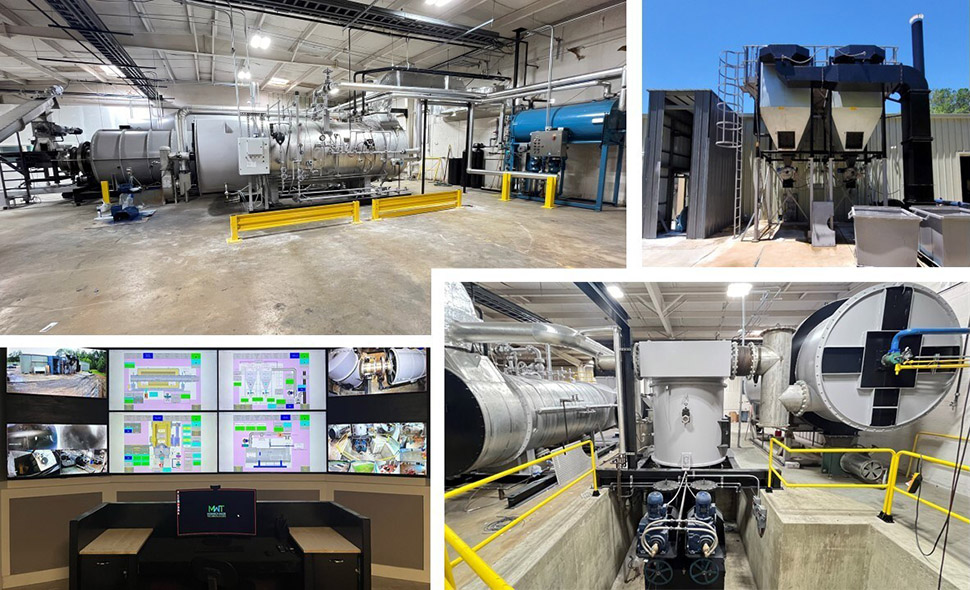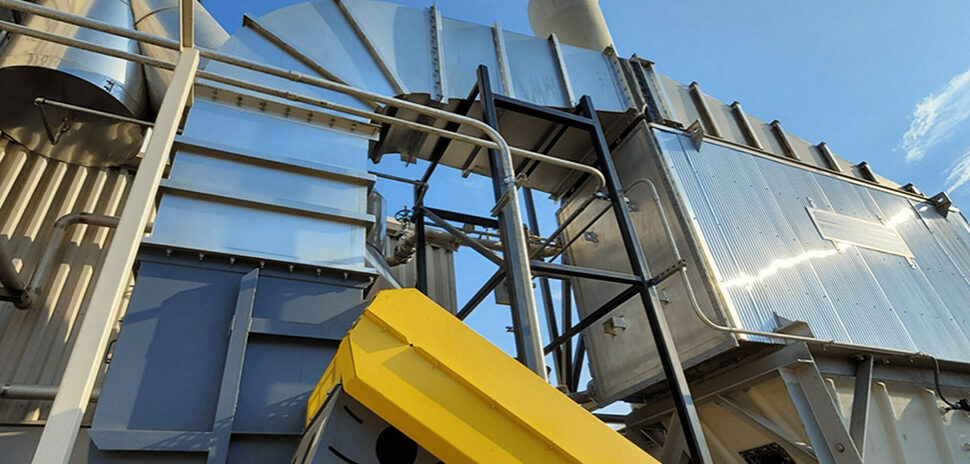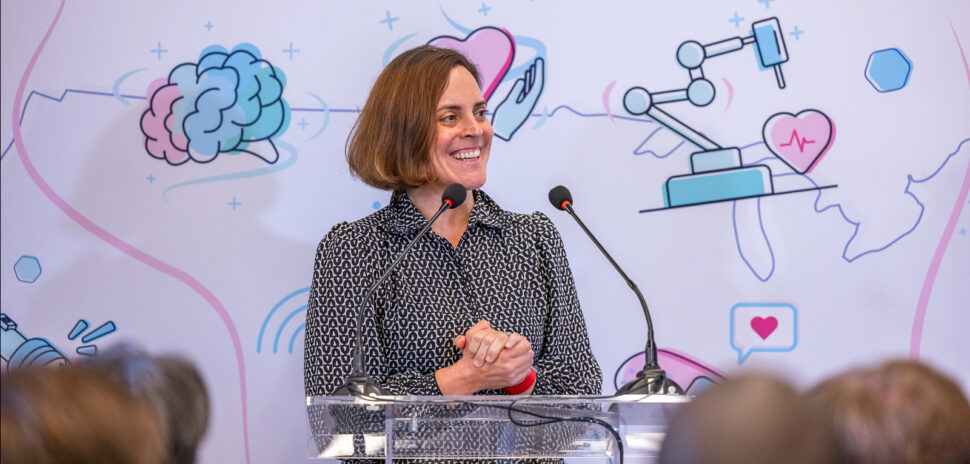Dallas-based Monarch Waste Technologies opens high-tech pyrolysis plant for medical waste » Dallas Innovates

Monarch Waste Technologies’ newly commissioned pyrolysis plant in Alabama (Photos: Monarch Waste Technologies)
According to the Centers for Disease Control and Prevention, the United States generates approximately 3.5 million tons of medical waste each year. Unlike other waste, which is usually sent to a landfill and discarded, medical waste poses three major threats: biological, chemical and safety-related.
These biological hazards can include HIV, tuberculosis, and hepatitis B and C viruses. Chemicals from sprays and splashes can come into contact with the skin or be inhaled. Needle sticks are a major concern, as is the possible presence of toxins and radioactive material, according to the CDC.
That’s why the safe disposal of medical waste is a major national issue – and why finding alternatives to incineration is critical to prevent dangerous emissions from becoming airborne and pumping even more carbon into the atmosphere.
Using Pyrolysis for the disposal of medical waste
This week, Dallas-based Monarch Waste Technologies (MWT) announced “a new benchmark” in medical waste disposal. The company has opened a new facility in Gadsden, Alabama, where a technique called pyrolysis is used to dispose of medical waste.
MWT points out that since 1995, over 99% of medical waste incinerators in the United States have been closed, dramatically increasing the need for new solutions.
Pyrolysis is a process that uses external, indirect heat to decompose medical waste in an oxygen-free environment. At what MWT calls “moderately low temperatures,” the waste slowly “roasts” as it absorbs the heat and decomposes in a sealed, airless chamber. In this “endothermic” process, volatile organic compounds are vaporized in the form of syngas, which is later oxidized at 2,100 degrees Fahrenheit, according to MWT.
The process produces no harmful emissions and produces a “safe, clean, pyrolytic carbon char” that is then disposed of in landfill.
“Almost a decade of teamwork” led to the new facility
MWT’s new Alabama facility utilizes MWT’s third generation PyroMed design, which can process 550 pounds of medical waste per hour.
The company says advances in thermal and material handling components have further optimized the pyrolysis production process, “making this facility reportedly the most technologically advanced pyrolysis system for medical waste destruction ever put into operation. The United States.”
“Our newest plant is the result of nearly a decade of teamwork to take full advantage of the unique environmental benefits of pyrolysis,” said MWT founder and CEO. David Cardenas said in a statement. “Our new Alabama “The plant is the most modern we have ever put into operation and it sets the tone in the industry to drive the development of further plants in the coming years.”
Tommy Kovatch, MWT’s Chief Operating Officer, said, “By leveraging years of reliable operational data, we can ensure that each system we deploy is not only more advanced, but also more economical than the last. This new facility is a testament to our continued commitment to excellence and our goal of being the industry standard for pyrolytic destruction of medical waste.”
“Environmentally conscious” – in a demanding regulatory environment
MWT said the commissioning of the Alabama The plant consolidates its position as a leader in the field of pyrolysis and “as a provider of a proven, sustainable, non-incineration alternative for the environmentally sound destruction of medical waste.”
Bob Bloma compliance expert and facility partner, highlighted the challenges associated with opening a new medical waste facility in today’s regulatory environment.
“From a regulatory perspective, the healthcare waste management industry is extremely challenging, with strict state and federal regulations governing the permitting and operation of a medical waste facility,” Blom said in a statement. “We appreciate the expert and diligent efforts of Alabama state regulators who were able to fully understand the uniqueness of our pyrolysis process and their professionalism in permitting our facility.”
![]()
Add yourself to the list.
Dallas innovates every day.
Sign up to stay updated daily on news and events in Dallas-Fort Worth.








